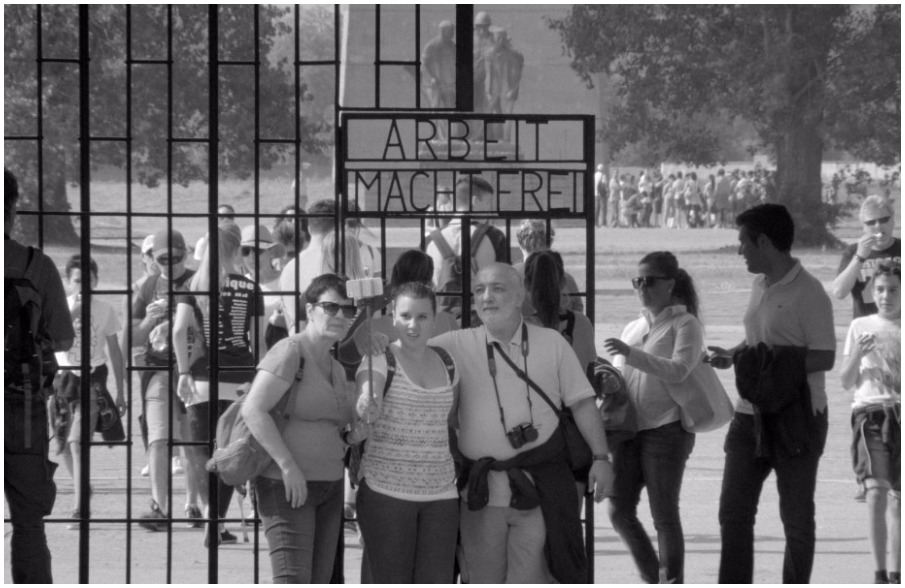PODCAST | Matt Micucci interviews director Sergei Loznitsa, who talks about his film Austerlitz from the 73rd Venice Film Festival.
Tourism and concentration camps. A strange mix that fascinated and sometimes appalled Loznitsa enough to bring it to the screen in his unflinching Austerlitz documentary. The immediacy of the piece, with its use of unmoving camera and black and white photography, evokes the power of the actuality of early cinema. But also, the film invites the viewer to openly interact with the film and come up with their own conclusions.
Austerlitz, in fact, shows no signs of obvious manipulation, and simply portrays its settings of Nazi Concentration Camps and the way in which tourists interact with it in a direct way. We ask Loznitsa about the nature of his film, his need to show it and the reason for his stylistic choices as well as his own personal reactions to the things the documentary shows.
AUSTERLITZ. There are places in Europe that have remained as painful memories of the past—factories where humans were turned into ash. These places are now memorial sites that are open to the public and receive thousands of tourists every year. The film’s title refers to the eponymous novel written by W.G. Sebald, dedicated to the memory of Holocaust. This film is an observation of the visitors to a memorial site that has been founded on the territory of a former concentration camp. Why do they go there? What are they looking for?






































